Common plights of RVers that we've yet to experience in nearly 3 years of full-timing
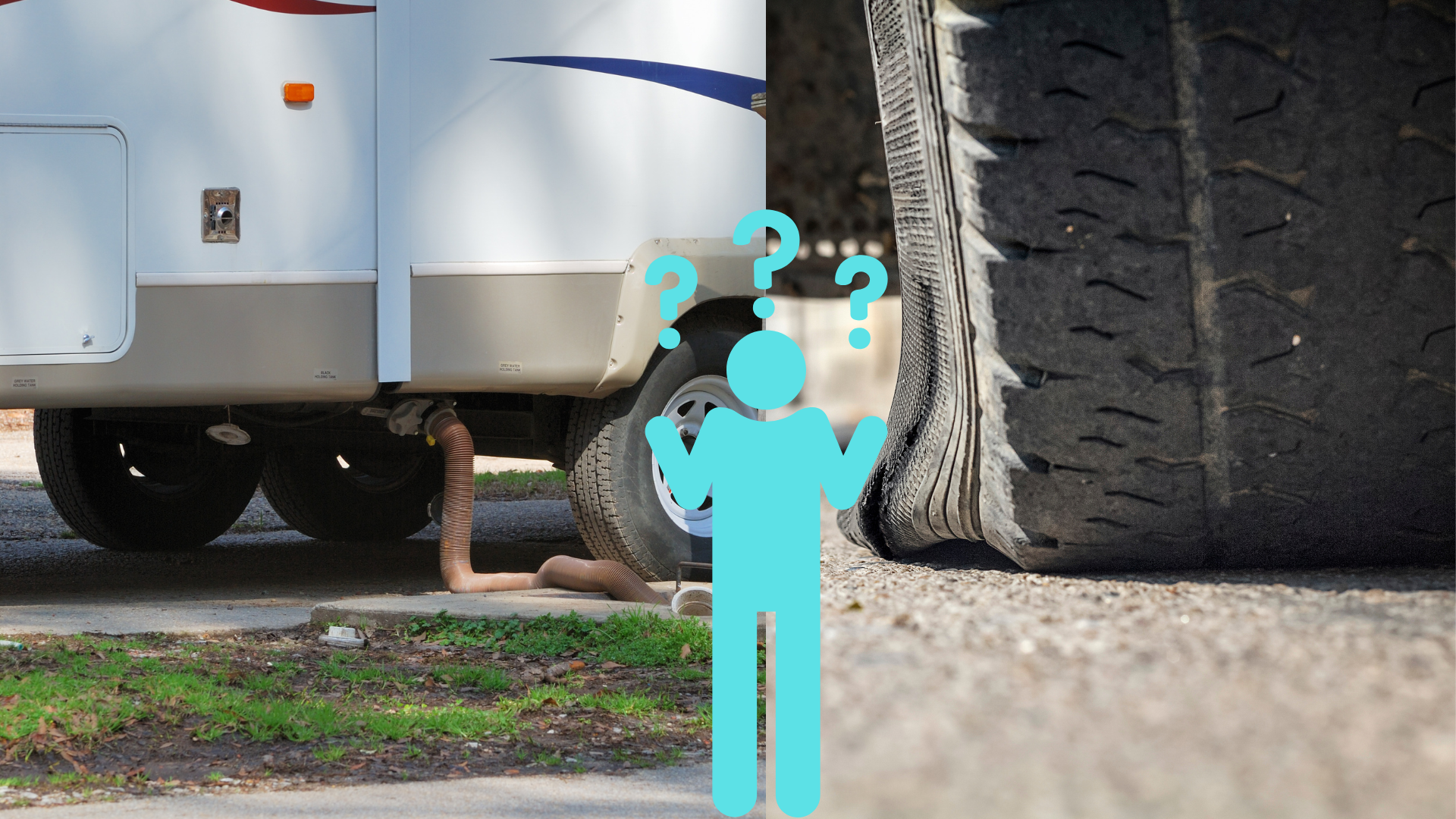
At the end of December, we will be celebrating 3 years of living full-time in our RV. In that time, we've hit 43 states and 3 countries, traveling as far east as Maine, as far west as California, and (mostly) everywhere in between. Along the way, we've been known to face some big drama. Not every full-time RVer gets struck by lighting or needs to leave their rig behind in a flood. Drama aside, though, we really don't have a lot to complain about. Our travels aren't smooth sailing; we still have lots of repairs along the way and life does get tough. However, as we round out year 3, we look back with surprise that we've somehow managed to avoid many plights that are far too common with other RVers.
We feel a bit nervous writing all this down, like we might jinx ourselves by putting this out in the universe, so we'll first engage in the obligatory gesture:

Alright, now that that's out of the way, let's dive in!
Cabinets opening/things falling out during travel
Our ATC Gamechanger Pro has cabinets that latch with flush latches, meaning they are flush with the cabinets.
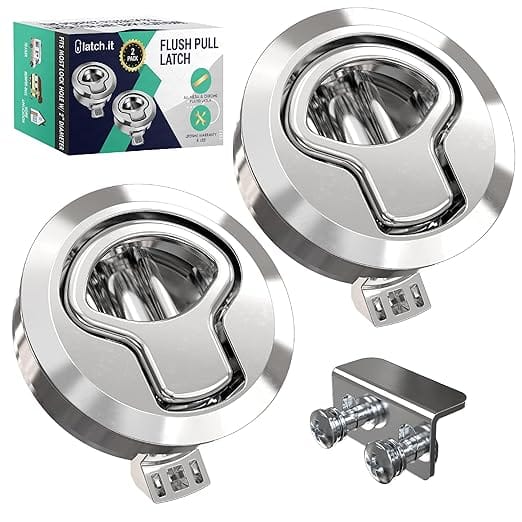
They're a simple contraption, and evidently they get the job done because we have never had one unlatch during travel, and we have been on some extremely bumpy roads!
We have needed to replace a couple of latches because they loosen over time, but this only causes them to need more effort to latch. We need to better align the latches with their brackets and can't just simply shut the door. But, once we get everything lined up, we're good to go.
On travel days, we double check each and every drawer and cabinet, as well as the fridge and freezer. We've even had times where we test our fridge door and realize its latch hadn't engaged! Just in case we ever do miss something like this, we try to keep things as organized as possible, keeping our cabinet belongings in extra containers and not putting anything breakable or spillable at the front of our fridge shelves. That's it, though. We've never secured our stuff with tension rods like we hear other RVers do. We've simply never needed to.
Even our magnetic latches on our workstation have held strong for 3 years of travel, and this was a piece of furniture we built ourselves by repurposing a bookshelf. We took a chance on magnets we thought would be strong enough, but had no idea if they would work. We can count on one hand the number of times one of the magnets hasn't held, but the wood panel has never come up enough that anything falls from the shelves. Gravity helps in this situation, as do the dining chairs that we keep in front of the work station when we travel.
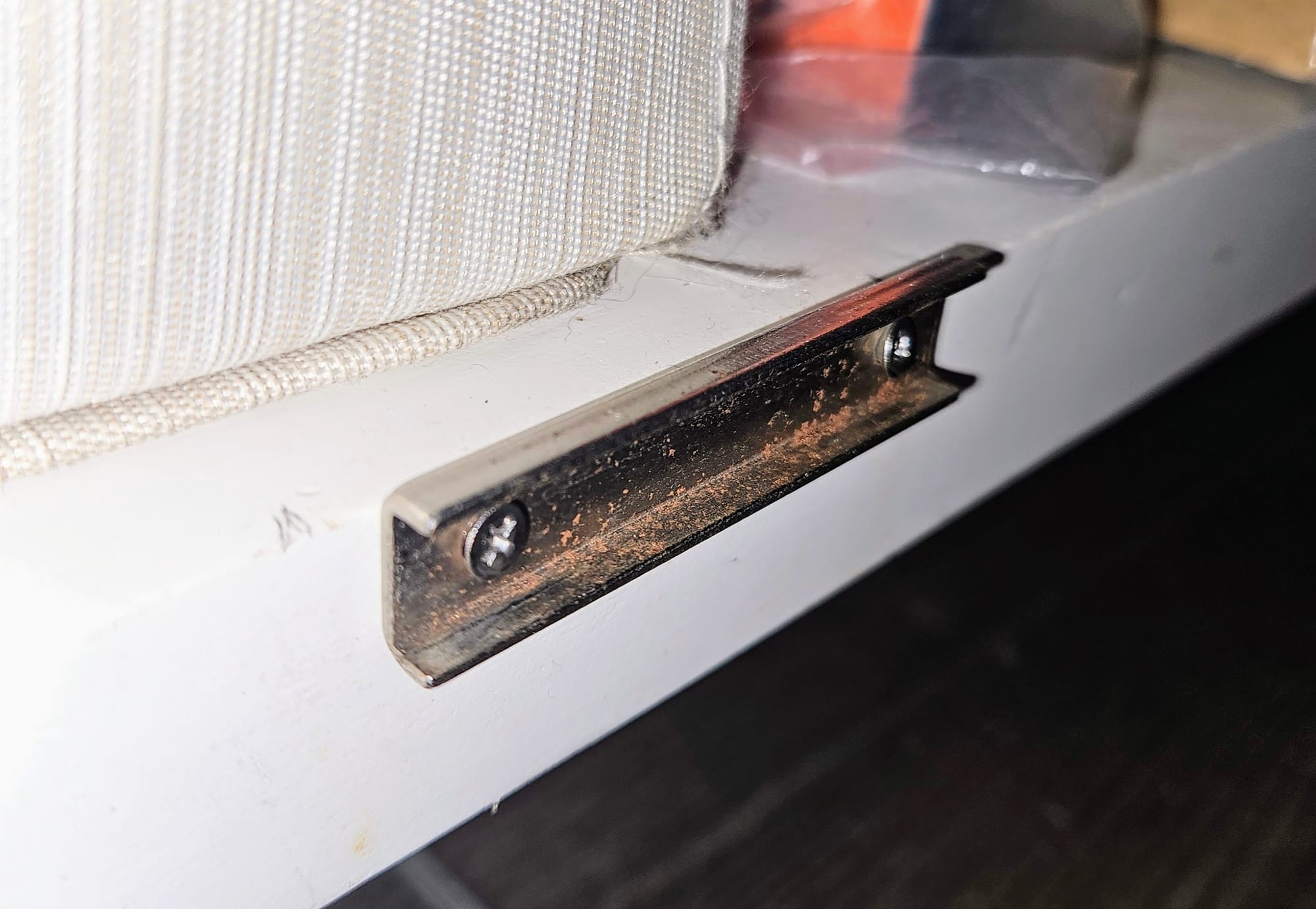

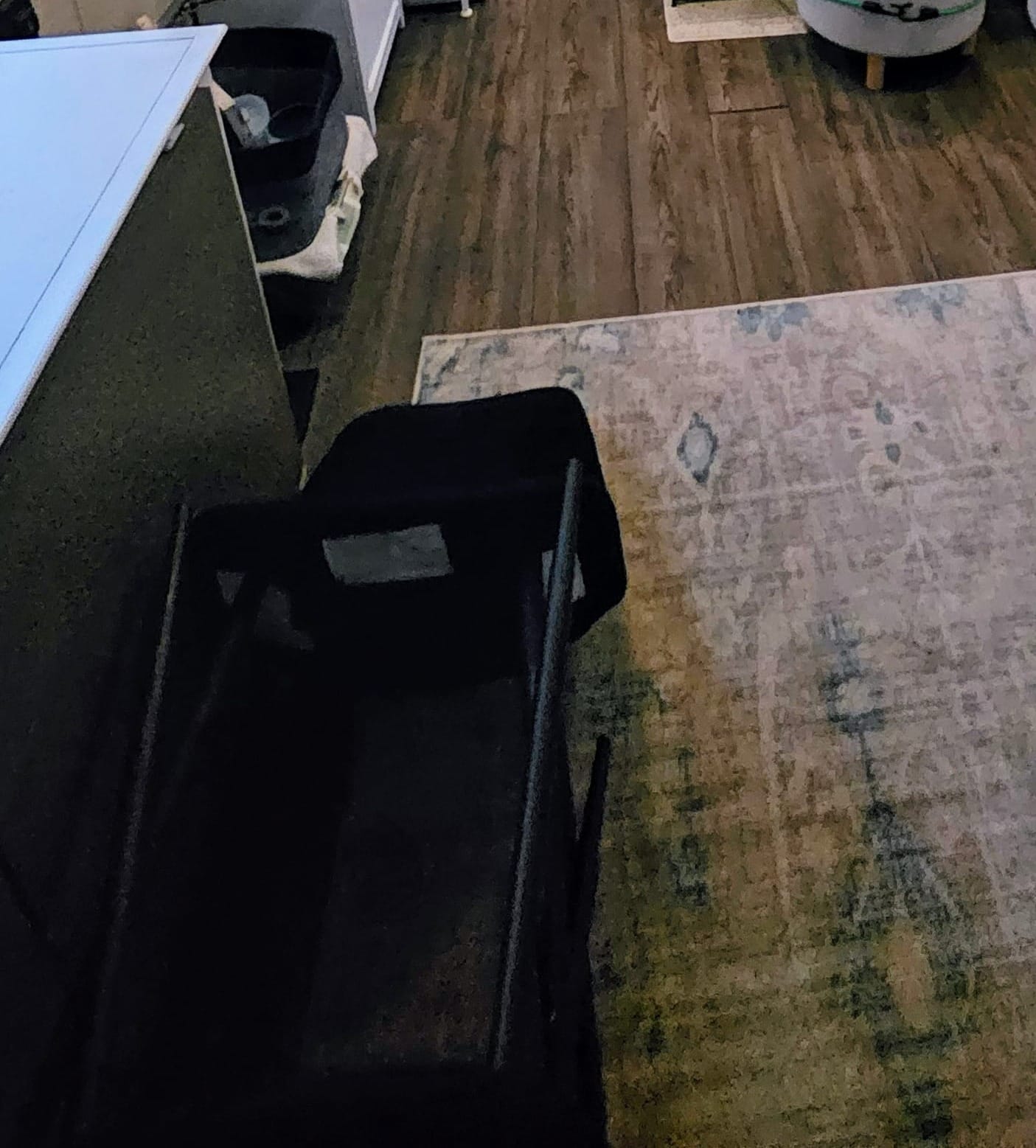
Losing hitch pins and other small pieces of equipment
We have a weight distribution hitch, which means we attach metal anti-sway bars to our hitch when we travel. The bars lock in with tiny pins, only a couple inches in length. We have heard advice from many RVers saying to make sure we carry extra pins because they get lost all the time. It's easy to see why. During the hitching and unhitching process, we take out the pins and set them aside, then becoming preoccupied with the much bigger equipment: The bars, tongue jack, and coupler. The pins can get buried under chocks, levelers, and blocks. They can slide or roll onto the ground. Or so we hear...because we have never lost a hitch pin. From the beginning, we have kept all of our small hitch parts in a plastic organizer. Some service techs have made fun of it because it's so dainty, but it's kept all our little hitch-related doodads safe and easily accessible. We know for a fact that this little box has saved us tons of time with our hitching and unhitching.
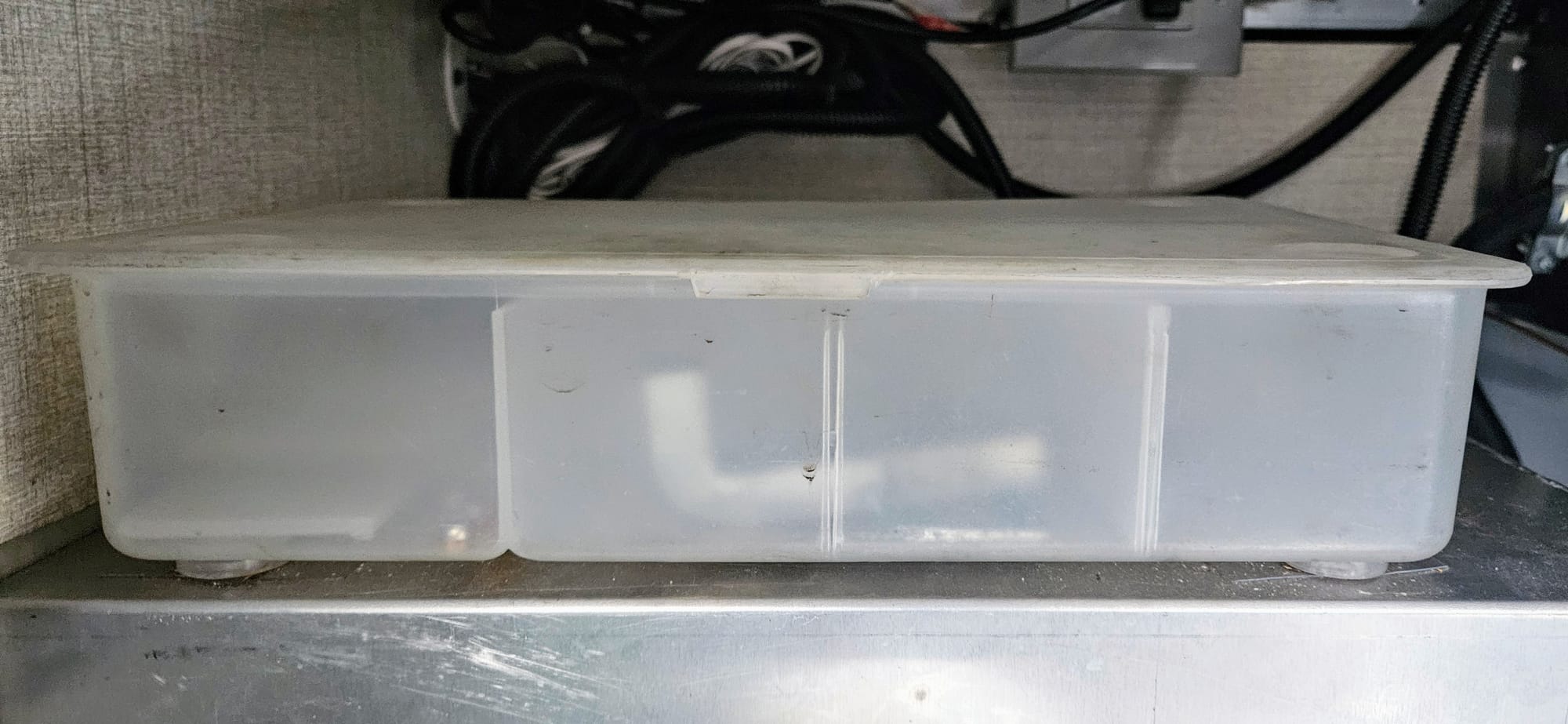
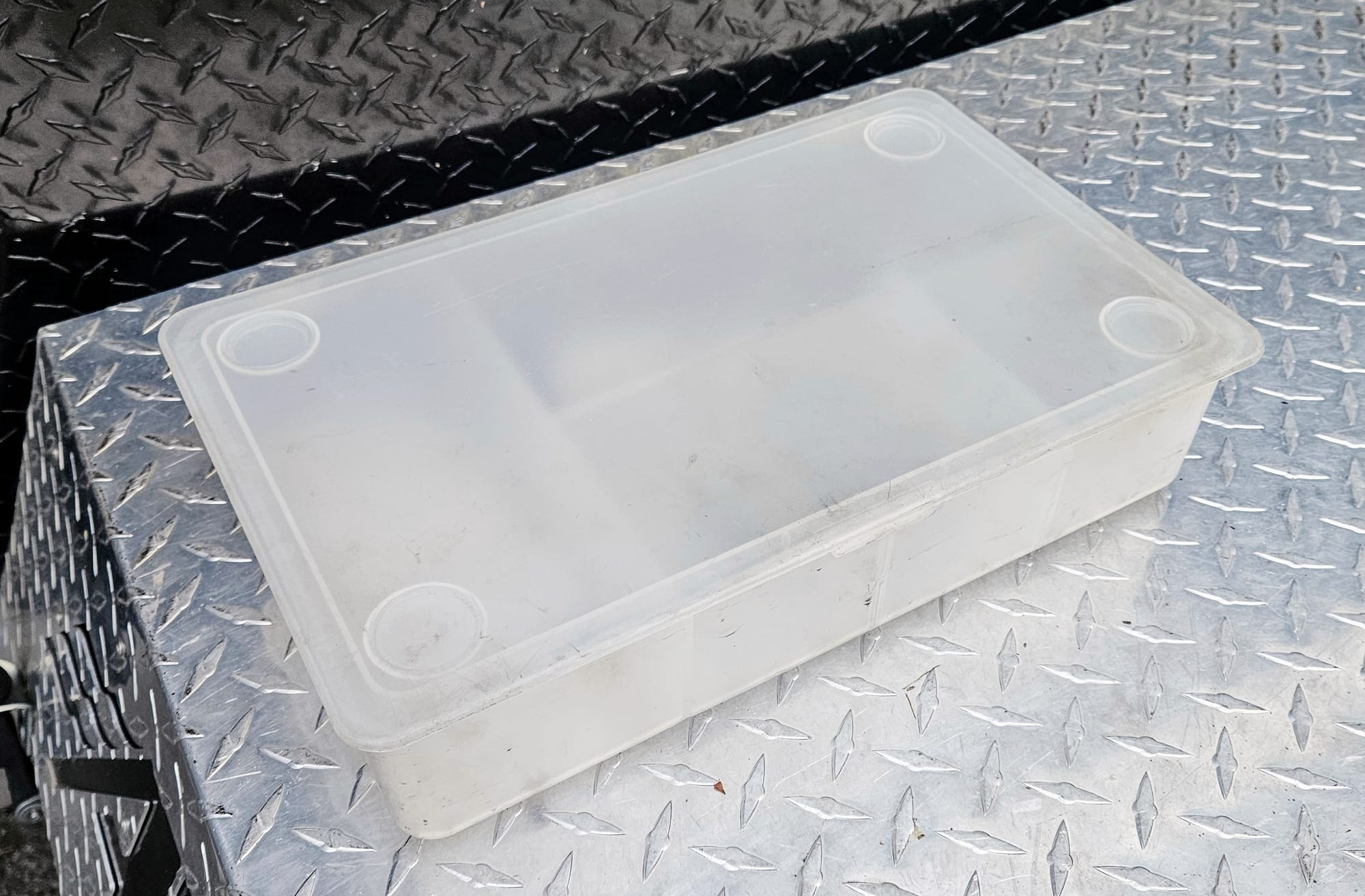
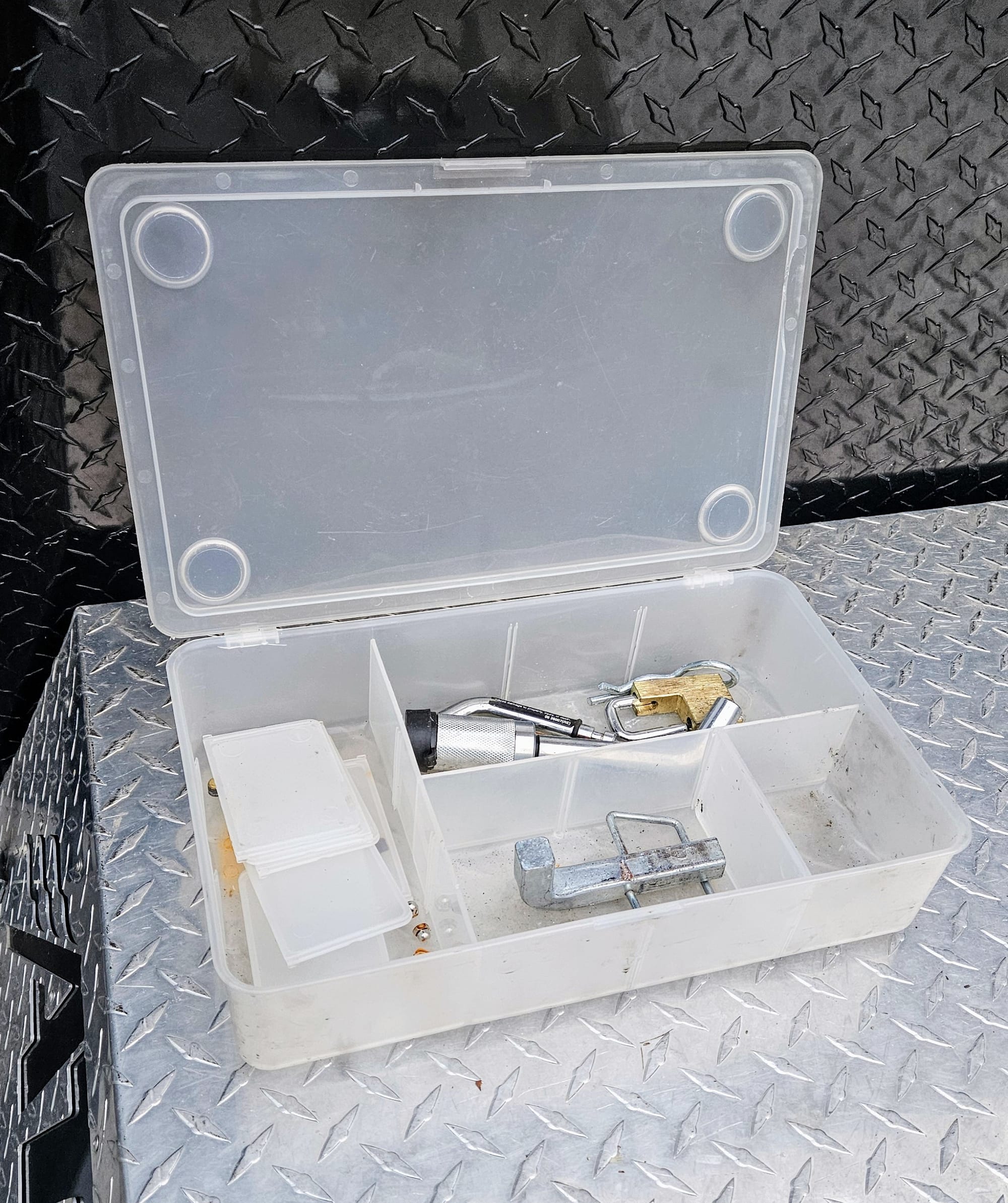
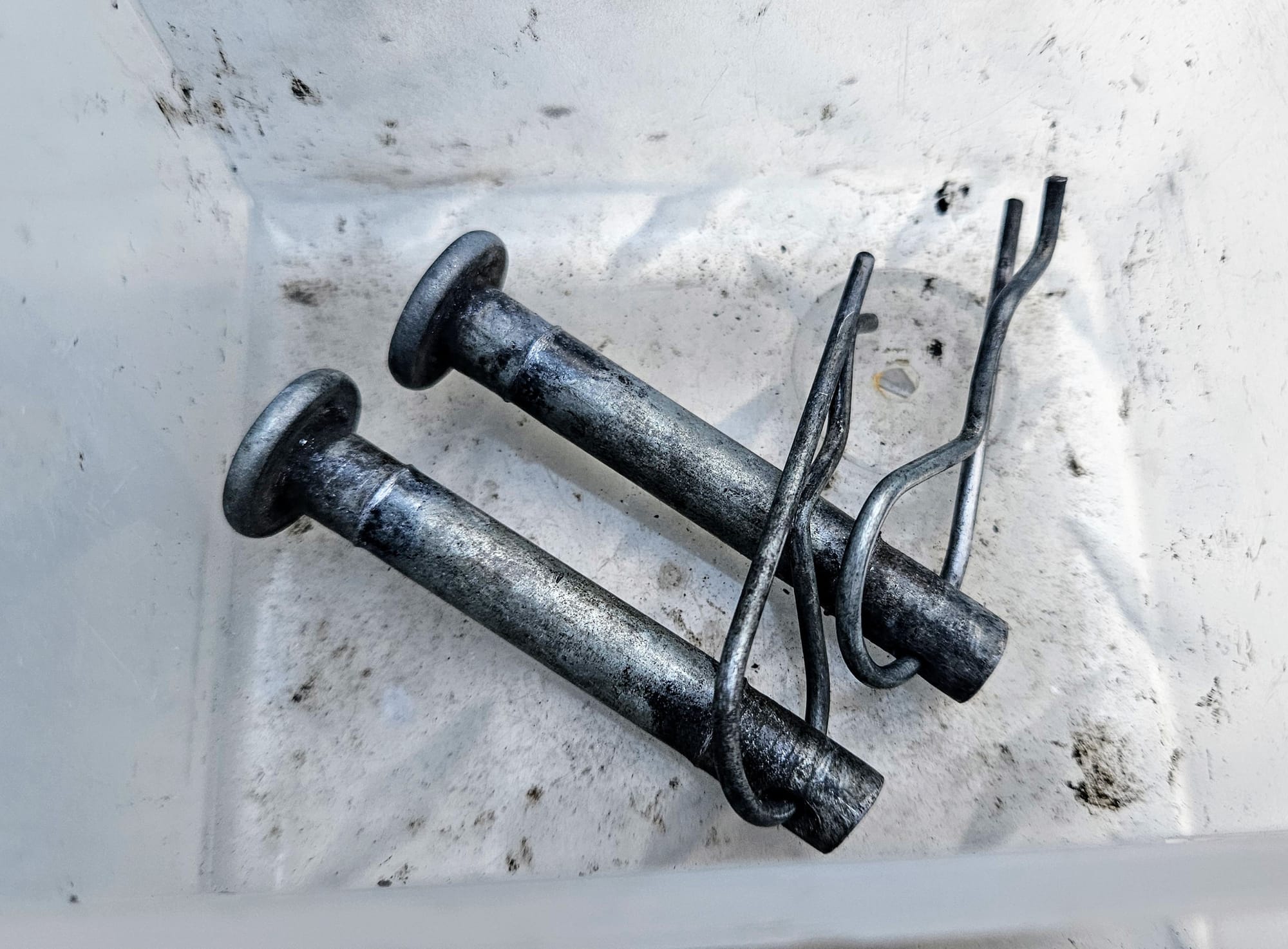
Of course, we're not opposed to buying more pins, but when we finally do, it won't be because of fear of losing them. One of ours has been bent for a while, so we'd replace it for that reason. We do, however, now travel with an extra retaining L-pin for the bars. Why? Because one day, we took our trailer for repairs, arrived at the shop, and discovered that somewhere on the drive, one of the L-pins popped right out. Our sway bar was just hovering, only secure by the small pin on the other side. Does this count as losing a pin? We see it more as the pin jumping ship and do not take accountability for such an action.
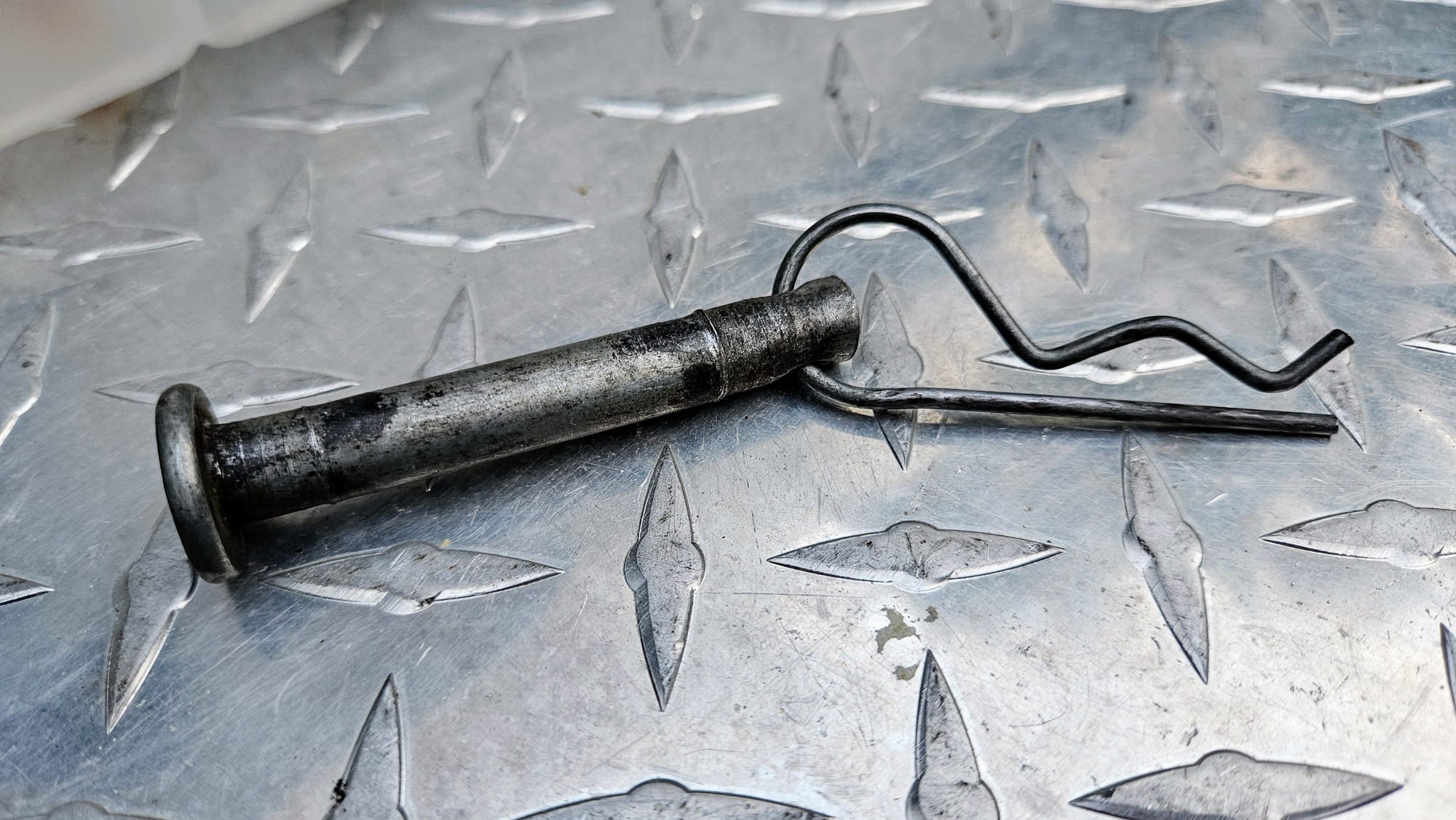
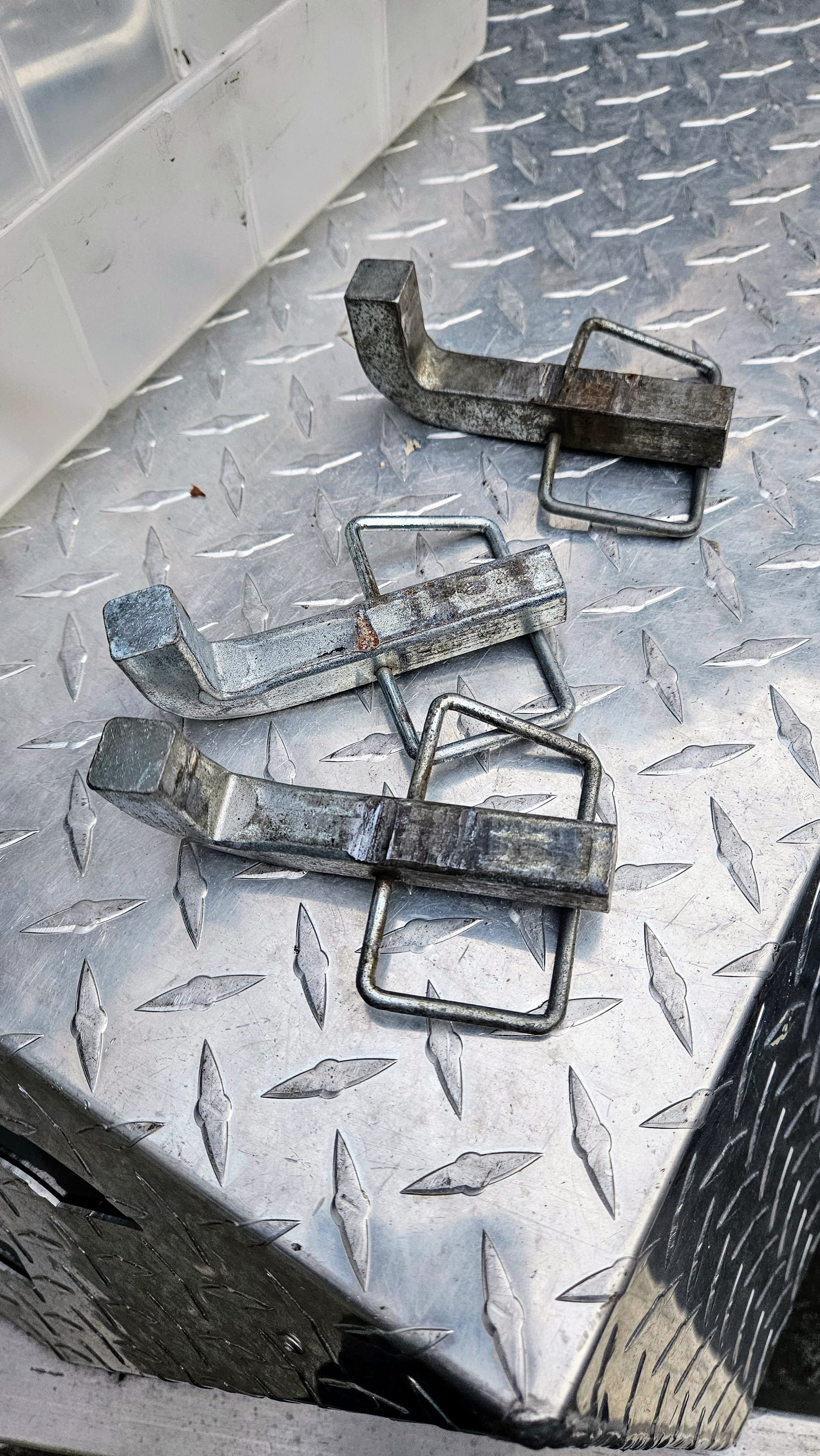
Tire blowouts
30,000 towing miles on two sets of trailer tires, and we've never had a blowout. It helps that we started off with high-quality tires and have only upgraded from there, but even so, it doesn't take much for a tire to blow. Hit a pothole just right, have some uneven wear, or become a victim to extreme temperature fluctuations, and your tire can be a goner. We've dealt with all of those issues on multiple occasions, and yet, we are still blowout-free. We've had some close calls, though! Just this year alone we found a giant bolt embedded in one of our tires, and 6 months later, noticed uneven wear on another one of our tires, due to endless axle issues. Each of those tires have been replaced, which technically means we're on 2.5 sets of tires for our trailer. Hey, whatever keeps us off the side of the highway!
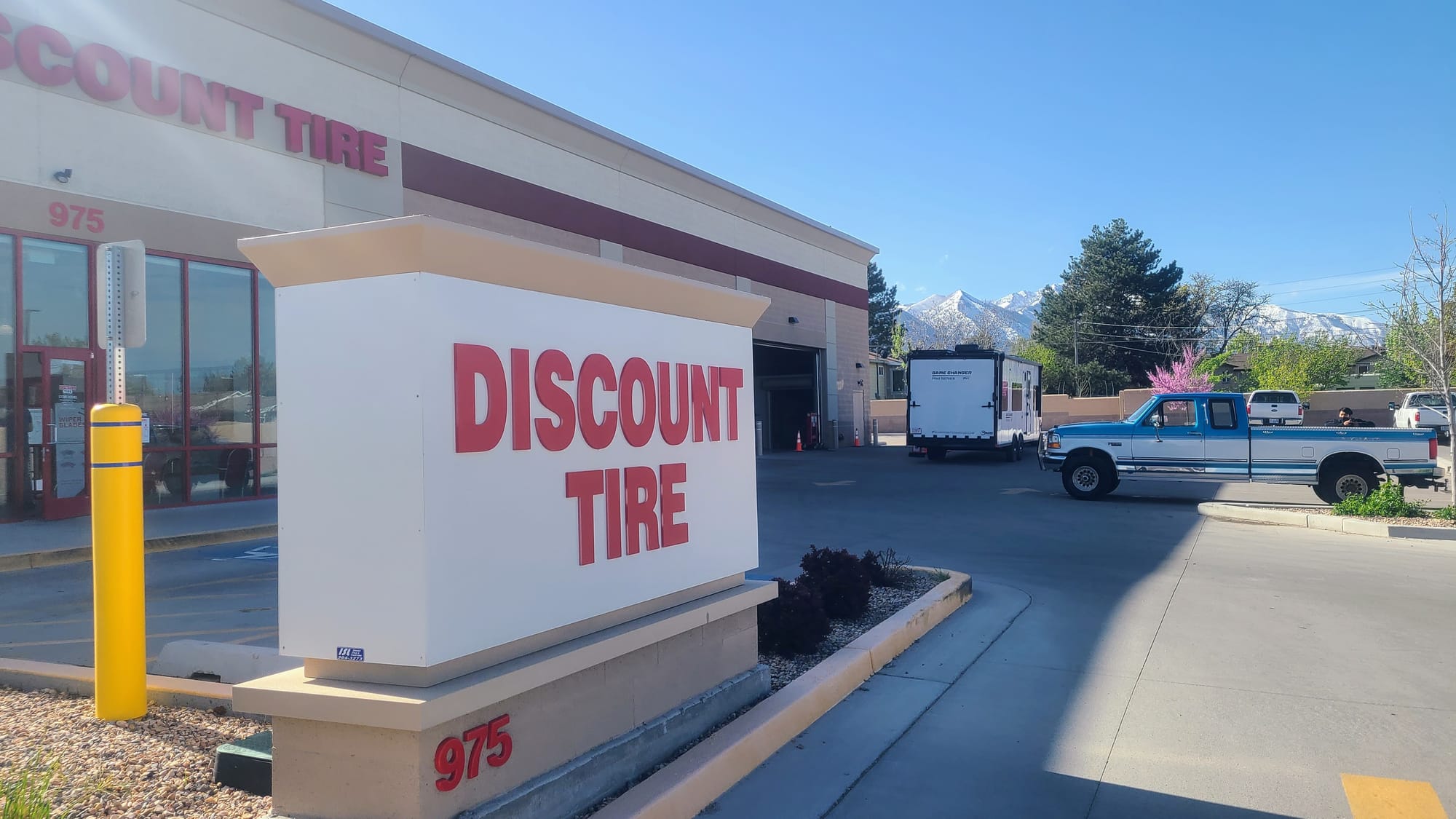
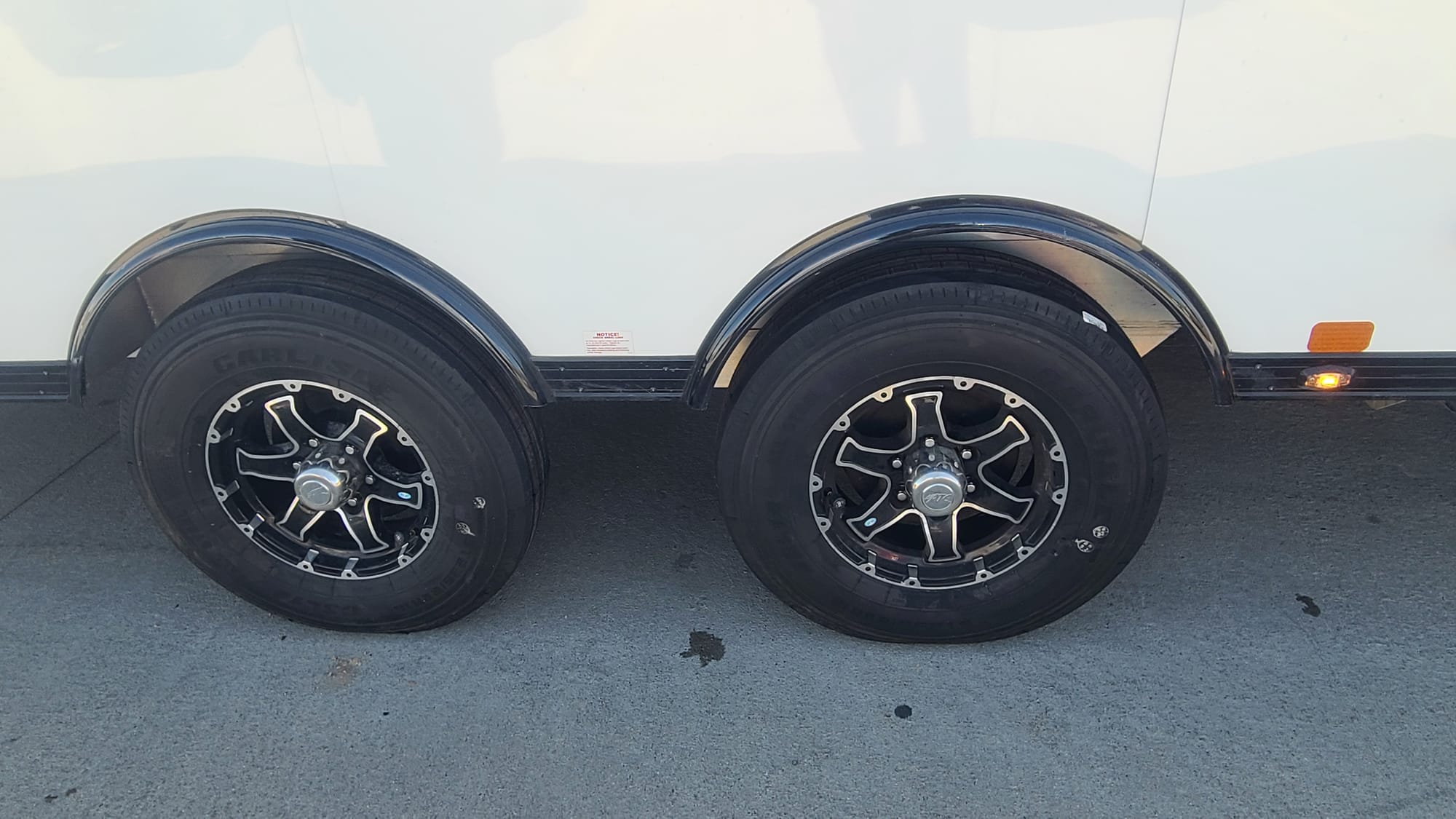
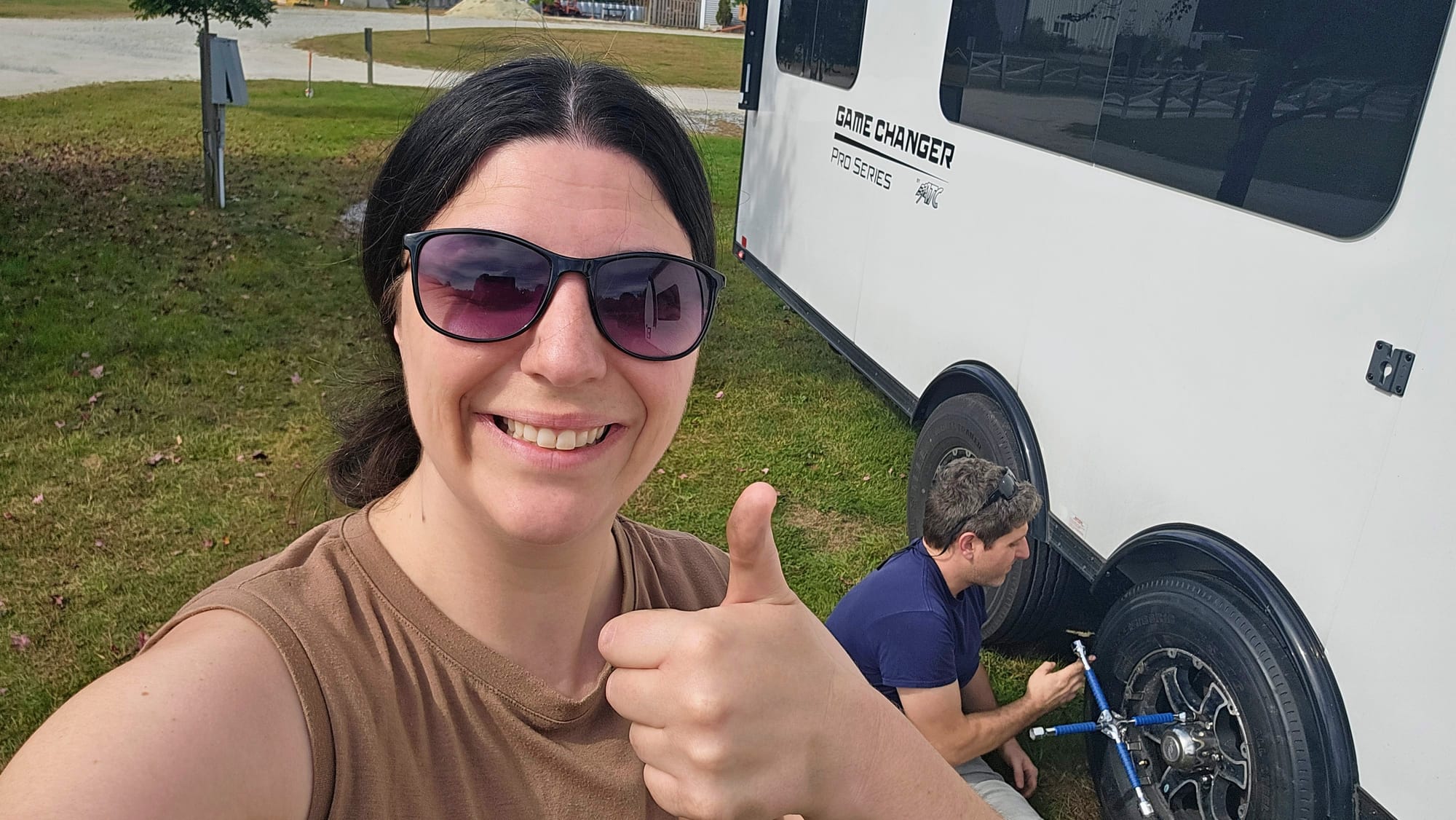
Impossible-to-book campsites
When we hear the RV community lamenting the fact that no one can find campsites anymore, we're the first to call hyperbole. We believe that camping is more popular than years ago, and it's more difficult to be a spontaneous RVer without booking reservations ahead of time. We are also aware that some particular campgrounds are very tough to get into, especially during peak times. This is the case with lots of national park campgrounds, as well as state parks in Florida in the winter. However, we have never had an issue finding somewhere to stay wherever we travel. We help matters by trying to avoid big vacation areas during big vacation weeks, but we don't always (Hello, Yellowstone on 4th of July week), and we've still been just fine. We've planned our travels to include a mix of advanced bookings and more spontaneous journeys. If we know we want to hit a big destination, we try to make plans ahead of time. We can count on one hand the number of times the campground we want to book has no availabilities. Compare that to the well-over-100 campsites we've stayed at in the past few years. The full-time travel life helps because we grant ourselves flexibility. We do not need to cram our trips into school vacation weeks or summertime. If we try to book a site and there's no availability for our dates, we can sometimes rearrange our schedule to arrive at the campground a different week. Sometimes arriving on a weekday instead of weekend makes all the difference. With these little adjustments, we've successfully found somewhere to stay at all the destinations we've traveled. Better yet, we haven't ever had to change destinations because of lack of availabilites.
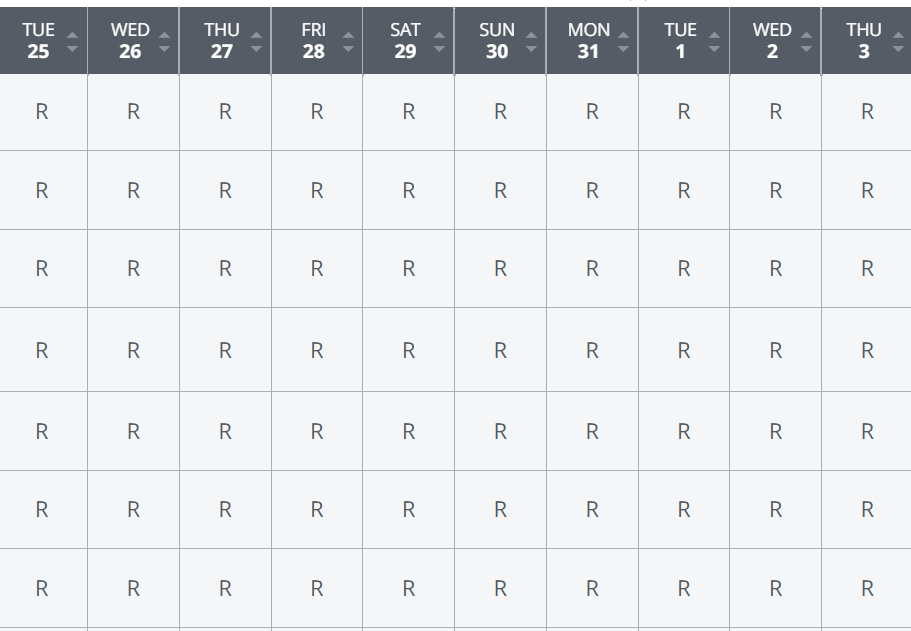
Crowded national parks
In a similar vein, the "overcrowded national parks" news stories have become the hot topic ever since the pandemic. Some of this is pure fiction, as visitation numbers are actually not as high as pre-pandemic years, but we're sure that some travelers have hit national parks at times that are insanely crowded. Lots of popular parks have implemented timed entries and reservation systems. They're obviously doing this for a reason. In our travels, though, we have had absolutely no issues with crowds at national parks. Since we began RVing, we have visited 20 of the 63 National Parks, and many of those are some of the most visited. The longest line at an entrance gate was at Rocky Mountain National Park, during foliage season, at 8AM on a Sunday before the timed entry hours started. Sounds like a recipe for disaster, doesn't it? Well, it only took us 15 minutes to get through, and once in the park, the crowd levels were normal. We found parking (even at places the rangers said there wouldn't be any), and we hiked popular trails without hitting any traffic jams.
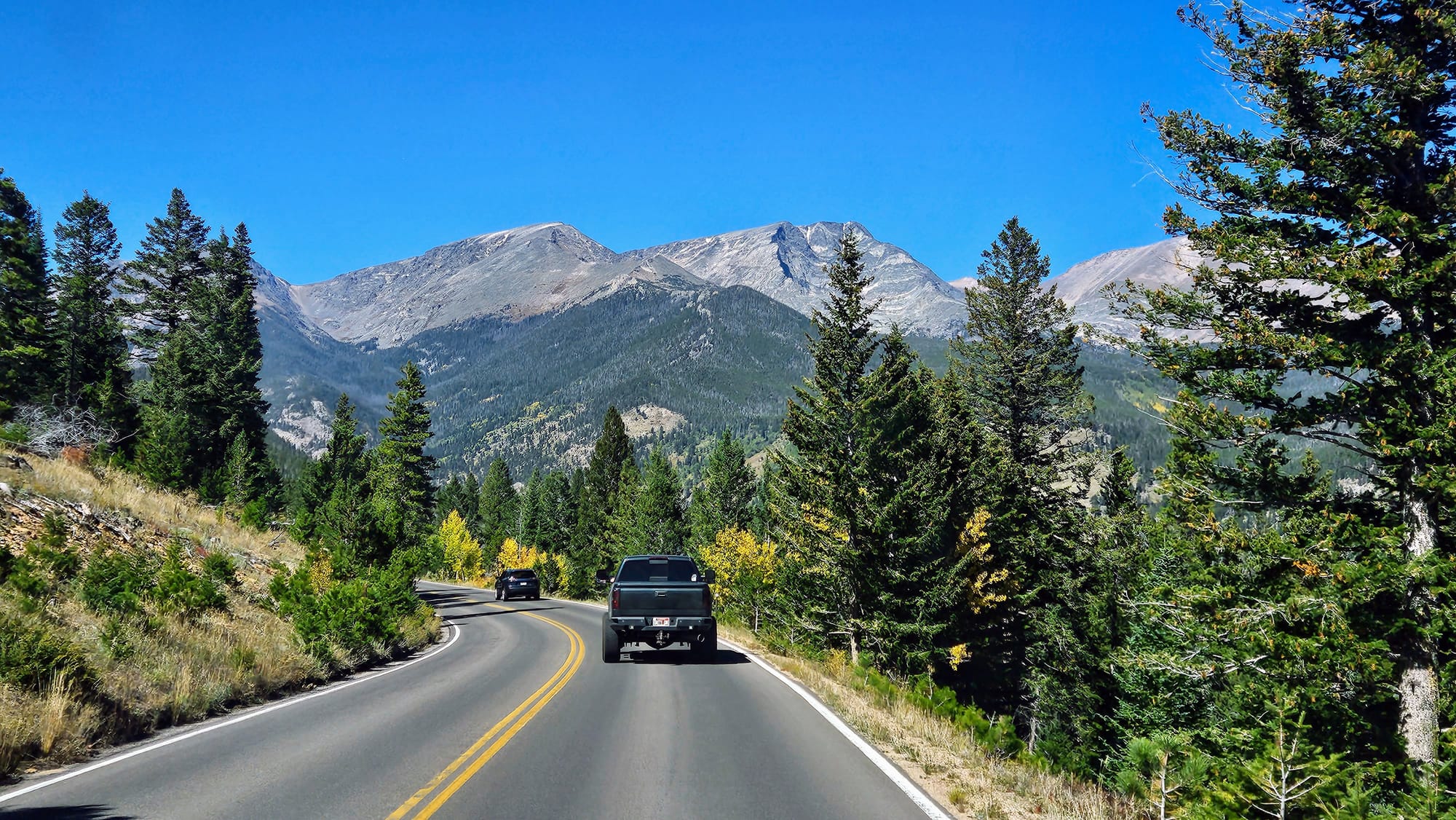
Rocky Mountain is not the only National Park we've visited with timed entry. We also went to Glacier, through Memorial Day Weekend and into the start of their timed entry requirements. We never had to deal with long lines, traffic, or nowhere to park. We mentioned earlier that we visited Yellowstone on 4th of July week. We actually spent the week leading up to July 4th in and around Yellowstone, and the week after July 4th at Grand Teton. We found parking at Jenny Lake on the Sunday after July 4th. That speaks volumes.
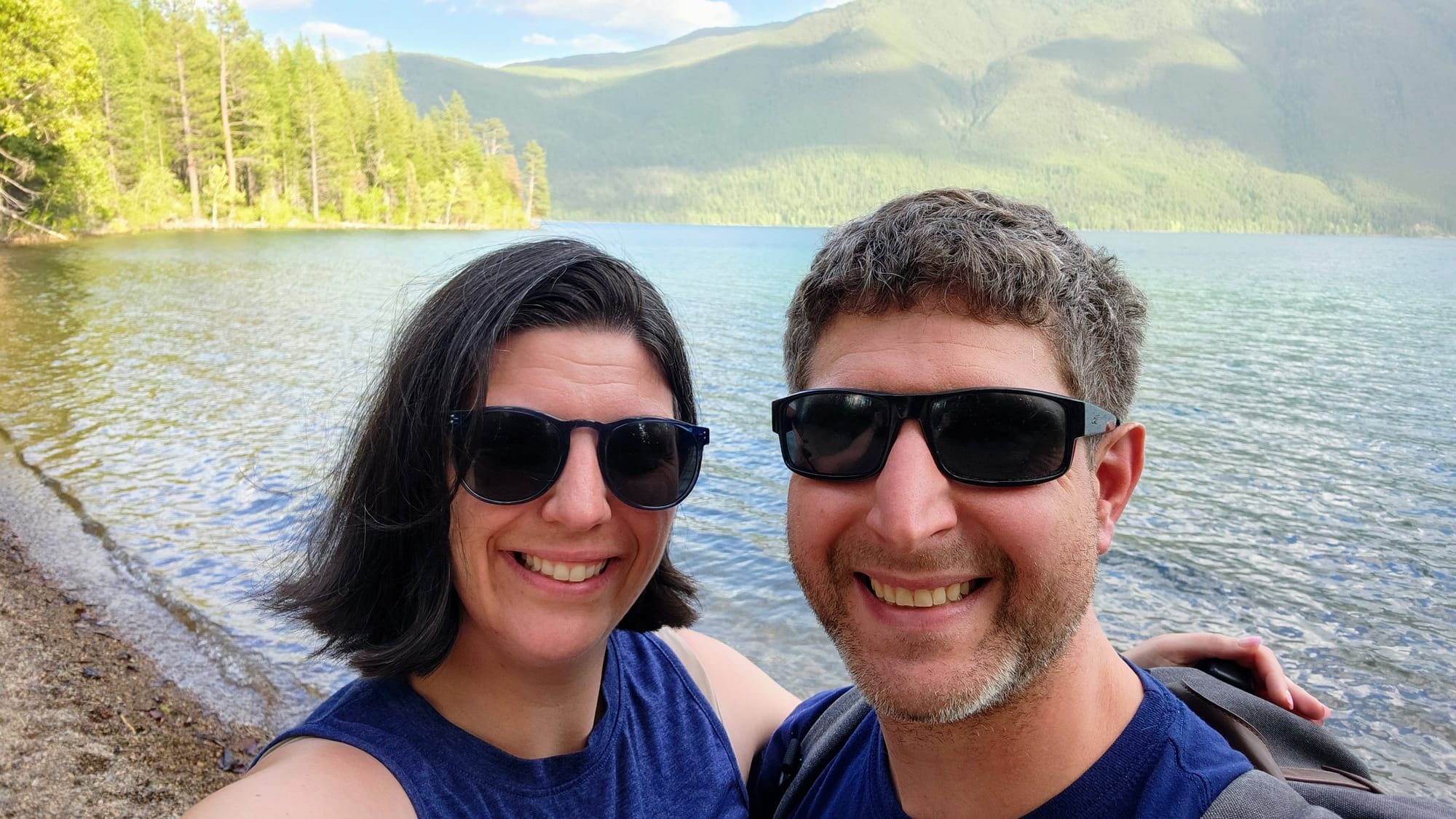
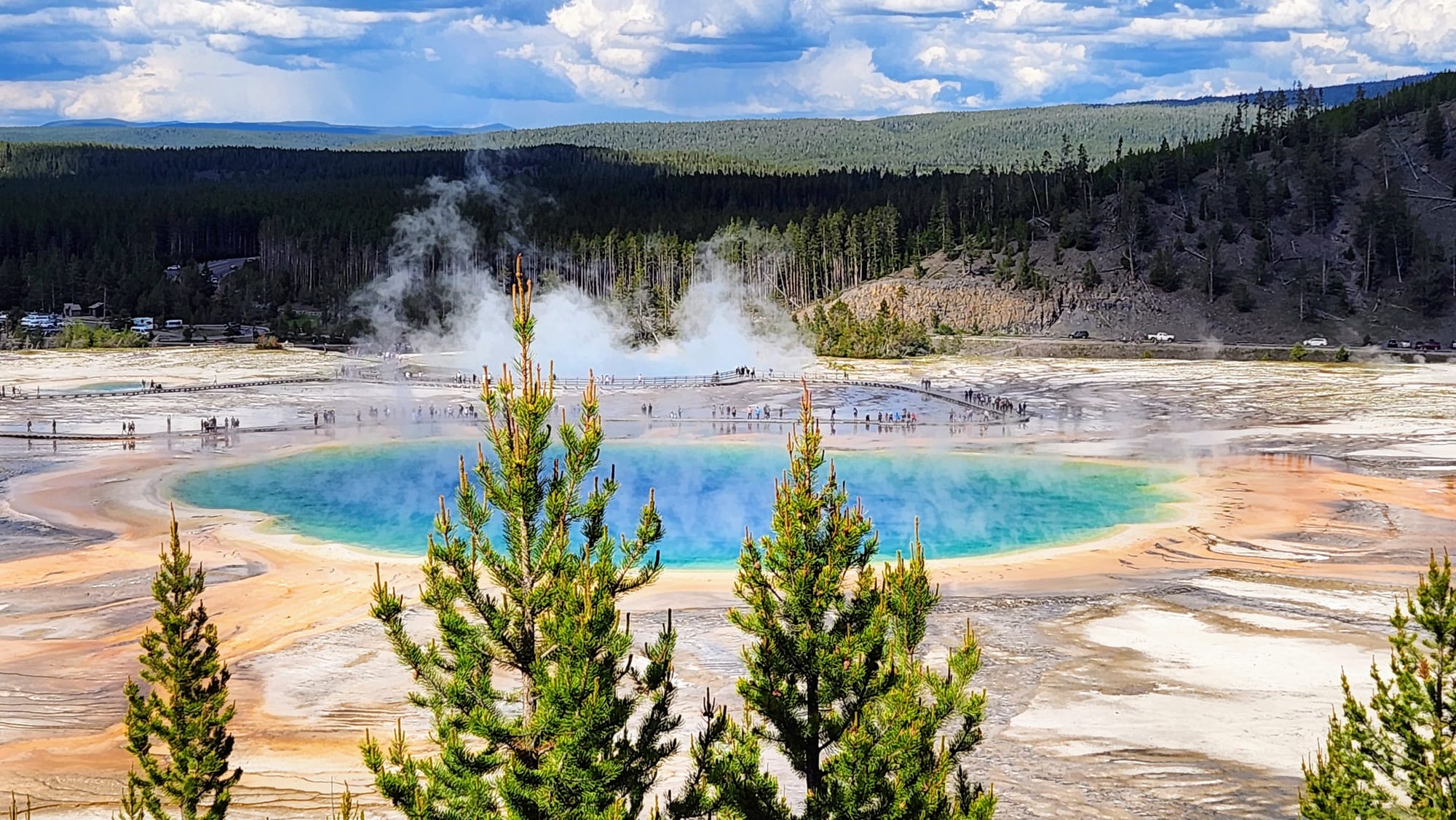
Tons of space on the Grand Prismatic Boardwalk just 6 days before 4th of July
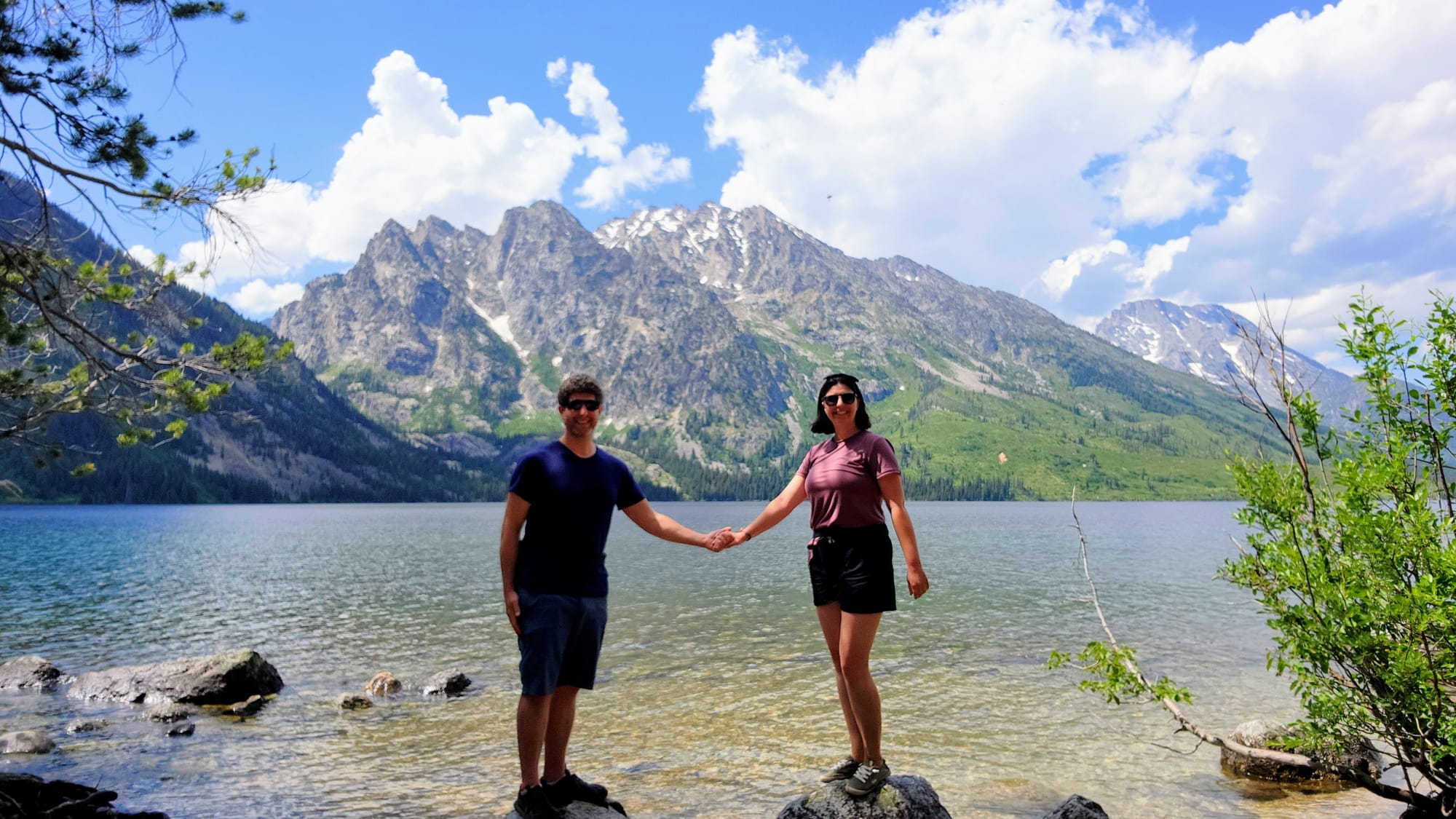
Then, who can forget our visit to Great Smoky Mountain National Park, the most visited National Park in the country? We wrote an entire blog post about the crowds. Well, the lack thereof.
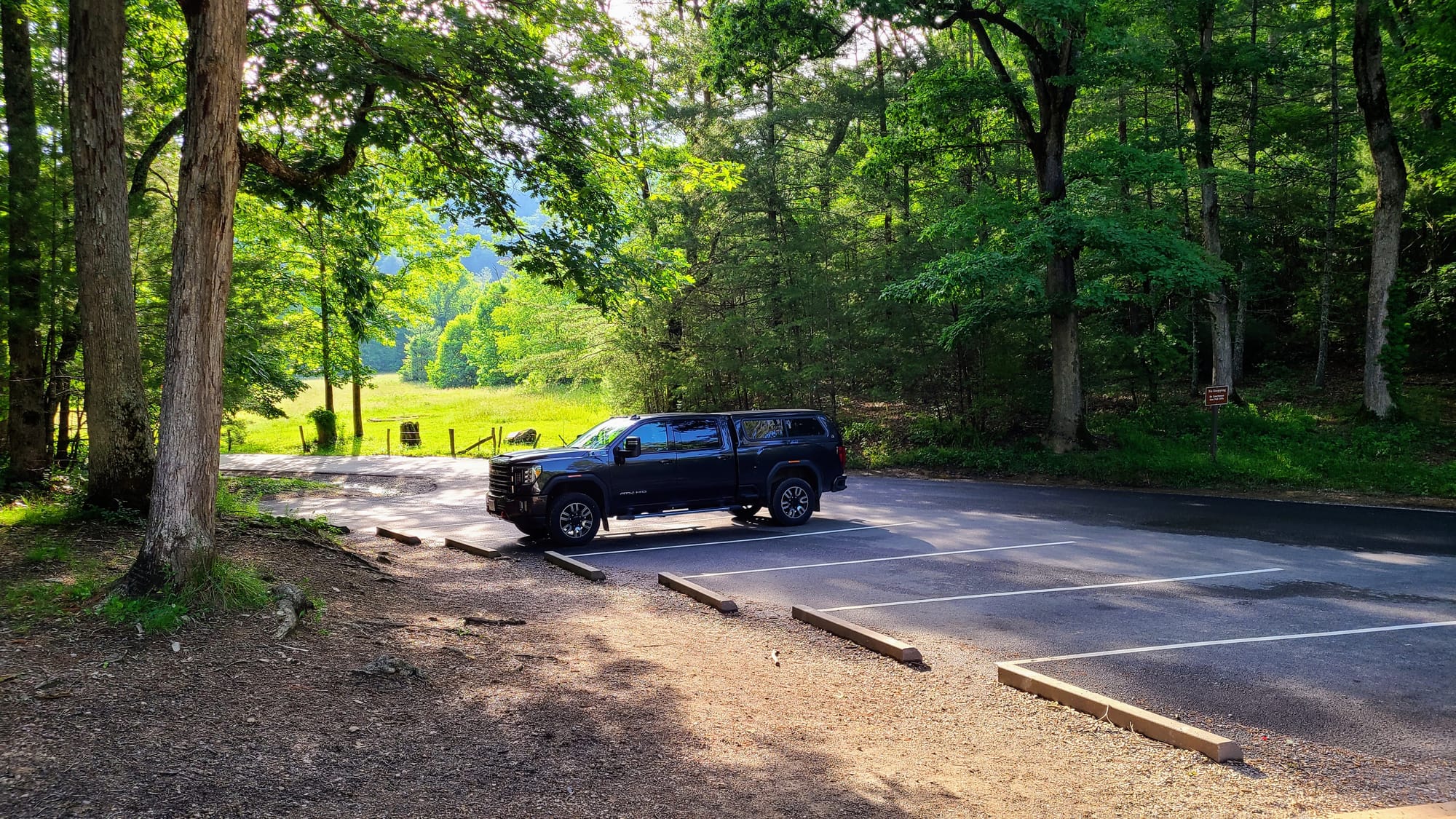
It's become a running joke that we must smell, and therefore we drive all the national park visitors away whenever we go. Worth it!
Long lines at the dump station
Speaking of smells...dump station experiences can really stink sometimes. We are listing two common complaints that we hear from RVers time and time again, and we try to commiserate, but this has simply not been our story.
We tend to split our time between RV sites with varying levels of hookups, often opting for a dry camping site or just water and electric. This means we frequent dump stations pretty often, whether they're at the campground or at a gas station or truck stop. Despite traveling on weekends much of the time, we have never encountered a long line at a dump station. On a few occasions, we've been nervous. Like when we stayed at an Army Corps of Engineers (COE) campground for the total solar eclipse back in April, and we checked out the day after the eclipse. Everyone at the campground had water and electric only sites, and we knew hoards of people would be leaving the same day as us. All the campsite posts had papers with the departure date listed, and on our campground walks we saw "4/9" written over and over again. There was only one dump station, located in a part of the campground that would not handle a traffic jam well. A long line would mean that some people wouldn't even be able to leave their campsites, and if the line was long enough, it might run all the way back to the campground exit, blocking people who didn't even need the dump station!
We worried about the optimal time to leave so we could avoid the line, but that morning as we packed up to leave, we were astonished. There were no hoards of RVers. When we got to the dump station, someone had just left, and we pulled right in. While we dumped, only one other person pulled in behind us.
We have a lot of similar stories, where we fear that the dump station will be crowded, only to find nothing of the sort. It happens so often that we wonder if weekenders have places to dump at home, because so many of them seem to just pack up on Sundays and head straight to the exit. Or do they just keep their tanks partially full because they're camping again the next weekend? Clearly we don't know how to weekend. Nevertheless, long waits at the dump station are so rare for us, that we even remember where longest wait was! Gilbert Ray Campground in Tucson. They had 2 stations, but one couple was brand new to RVing and struggling to figure out how to dump. The other station was occupied by a fifth wheel with huge tanks. We made the mistake of pulling off to get water first, and in doing so, lost our spot, and a third RV squeaked in ahead of us. We still only had to wait about 15 minutes. The newbies left and the camper in front of us went into that dump station. We followed the fifth wheel. Turns out, that other camper cutting in line was a blessing in disguise because we could smell that the newbies didn't leave the dump station in great shape. We were happy to wait a few extra minutes and take the clean one. Which brings us to...
Extra gross dump stations
We know RVers who try to avoid public dump stations because they often tend to be gross and smelly. People don't know how to dump property or they do a rush job. Some probably also don't care about the campers who are coming up behind them. Just watch the RV YouTube channels and you will hear stories that will turn your stomach: People dumping without sewer hoses; people dumping in flip flops and spilling everywhere; people using potable water hoses to clean out their sewer hose; and dump stations with human excrement around them - those people are taking the term "dump station" far too literally.
But, we've witnessed none of that. We recall one dump station a long time ago that looked to have a spill at some point, and it smelled a bit. Lots of others smell too, but nothing out of the ordinary, given the activity that happens there. We had another dump station where the sewer port was detaching from the ground, and we didn't know until the extra force from our black tank whooshed it loose. So I guess we left that dump station pretty gross, but it wasn't our fault, we cleaned up the best we could, and the park maintenance had to close it anyway to repair it. That's about it for our dump station stories. They have been surprisingly uneventful, and we're thankful for that.
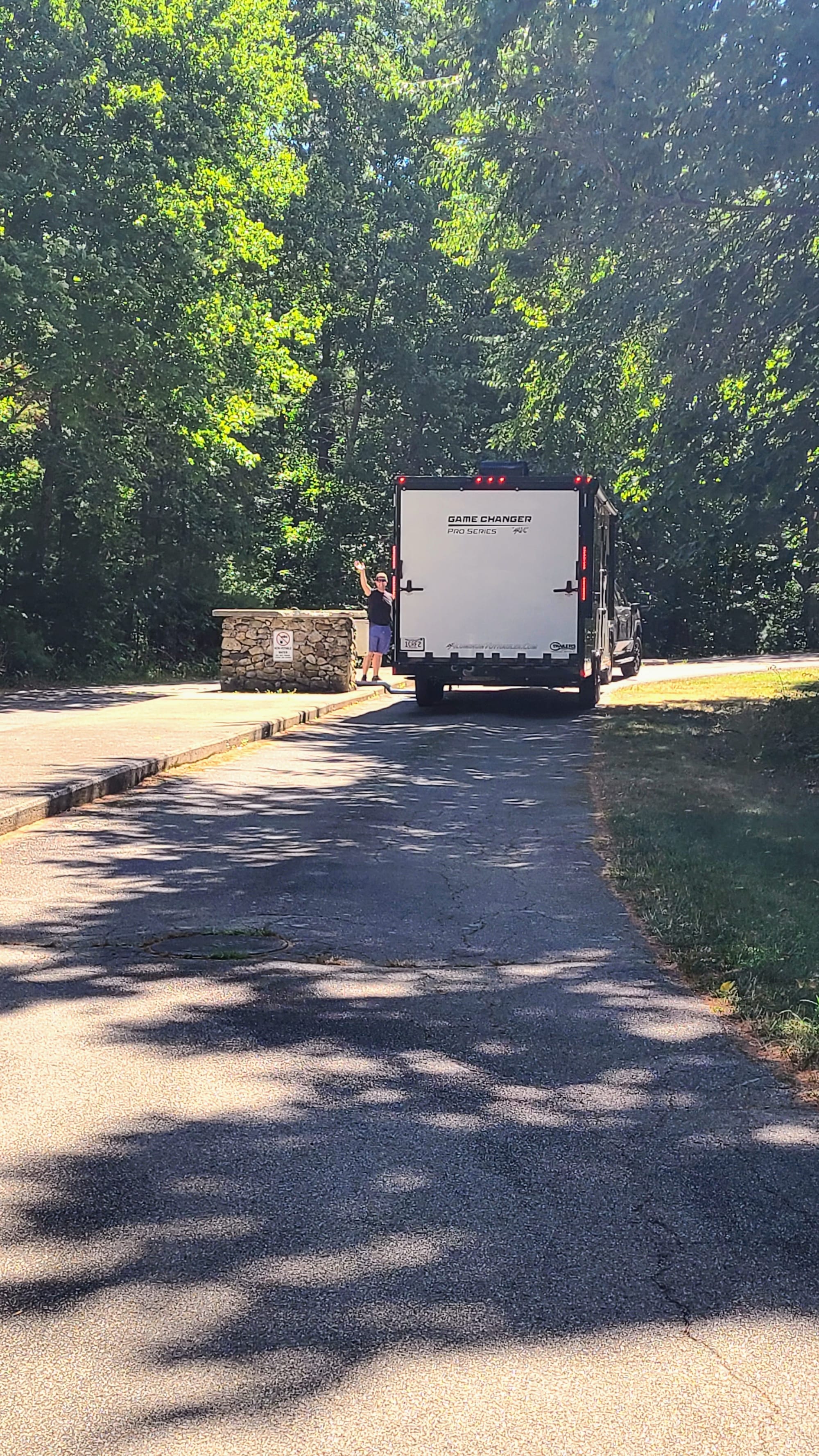
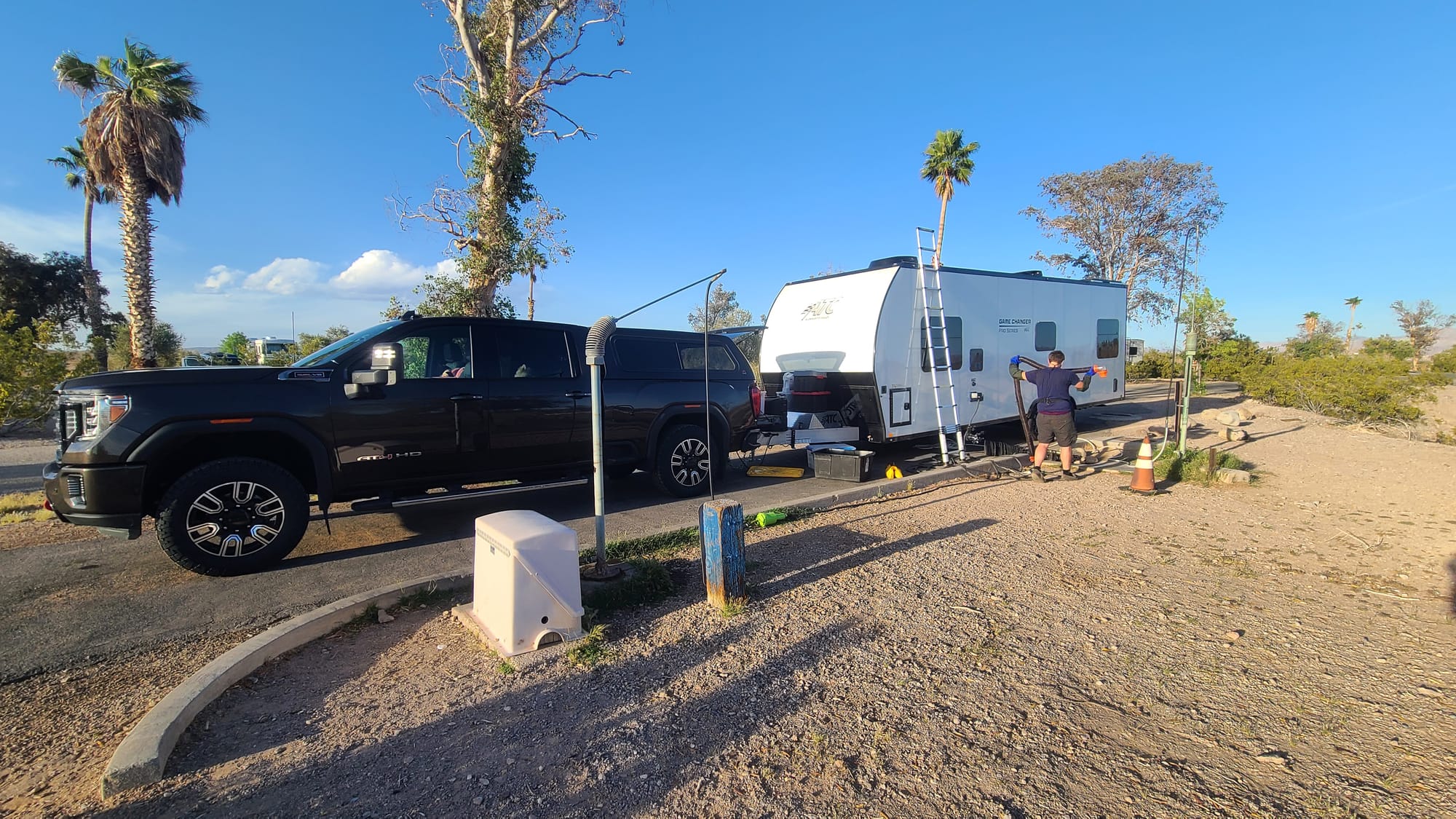
Our inability to relate to these common complaints could make us feel like outsiders in the RV community, but we integrate ourselves in far more uplifting ways. We love to share our knowledge and skills with other RVers, lending helping hands to our neighbors or sharing recommendations of places we've been. And, when the dramatic happens, we're there to offer sympathy with a "Don't worry, we've been there." We may have avoided these little plights for nearly 3 years, but we have had plenty of other things to complain about, and we've done just that, right here on the blog! We feel it keeps things realistic. We love the RV life, but it's not all sunshine and roses. In lots of ways, that makes us love the RV life even more.


